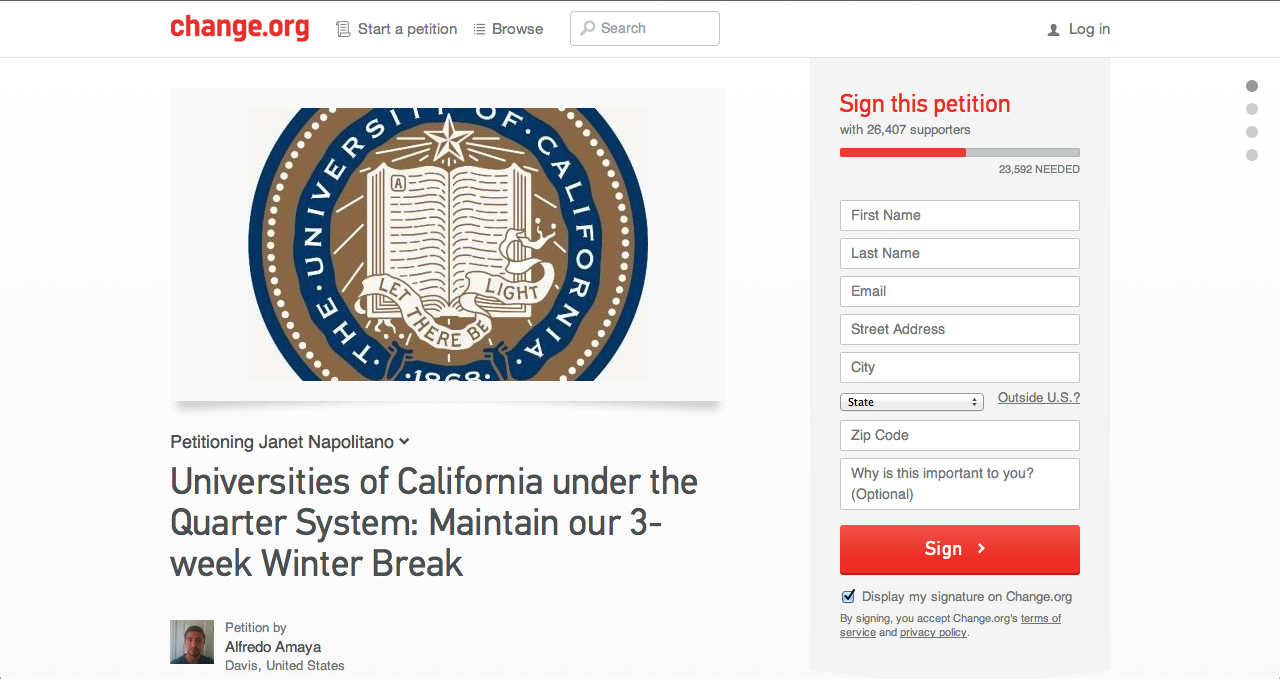A scheduling decision recently brought to light by the University of California system to push the beginning of the 2014 fall quarter back a week has elicited some harsh responses from UC students. The newly arranged schedule ensures that the academic calendar will avoid a conflict with the Jewish High Holy Days of Rosh Hashanah and Yom Kippur. The decision stems from a UC campus policy developed in 2007 to support students when religious obligations conflict with move-in dates. The resulting schedule change prolongs summer break by an additional week, but also shortens the winter break from three weeks to two. The decision is not without precedent; in 2009, UC Berkeley and UC Merced both reorganized their calendars in August to accommodate students observing the Muslim holiday of Ramadan.
Responses have been decidedly mixed. While the Jewish community on campus is certainly appreciative of the efforts of UC administrators to be mindful of their religious needs, others have responded with resentment and misunderstanding. A petition has been circulating to make up for the shortened winter break by delaying the beginning of winter quarter a week, thereby retaining a three-week vacation. However, several students have taken to the comments section to challenge the UC’s policies.
Understandably, for Jews and non-Jews alike, an academic schedule with a shortened winter break is grounds for frustration. Nevertheless, as a community, we must refrain from singling out and even vilifying groups on campus. Instead, it should be our chief priority to ensure that all groups are sufficiently provided for.
The greatest asset of UCLA is its student population. As an institution, UCLA is shared by a multitude of groups — each of which has a distinct culture with distinct needs. As such, the UC administration must work to ensure that the needs of each group are met (to the best of its abilities).
While most of the comments in regards to the new schedule are not inherently discriminatory, they do tend to reject the multicultural nature of the UCLA campus. Embracing multiculturalism means rejecting a zero-sum-gain mentality, featured so prominently by students in opposition to the UC policy. If one group of students is accommodated in accordance with their religious needs, it should not be viewed as a defeat for others.
Moreover, it must be noted that the scheduling change is not a product of a concerted effort by Jewish students, as many have speculated. Rather, it is a product of the University of California upholding its established policy when deliberating on the creation of the upcoming academic calendar. The Jewish community on campus, faculty included, has long been accustomed to balancing their religious and academic needs. Observant Jews, professors and students alike have compromised to incorporate their religious traditions into their demanding schedules. Rosh Hashanah and Yom Kippur, although essential to Judaism, are but two of a series of holidays that Jews on campus observe annually without demanding a more observant-friendly schedule.
It would take a masochist to enjoy a shortened winter vacation, especially given the stress-inducing nature of a UCLA quarter. Thankfully, the aforementioned petition caters to everyones’ needs: it maintains an academic schedule friendly to Jewish students and faculty and retains a three-week winter break (of special importance to international students needing to travel). Owing to the fact that a prolonged spring quarter will cut into established summer school times, however, the petition is unlikely to prompt the hoped-for change.
Ultimately, we must proceed with caution when speaking of UC policy designated for one of many campus communities. Such instances serve as prime opportunities to better understand the needs of the groups with whom we share our campus.

